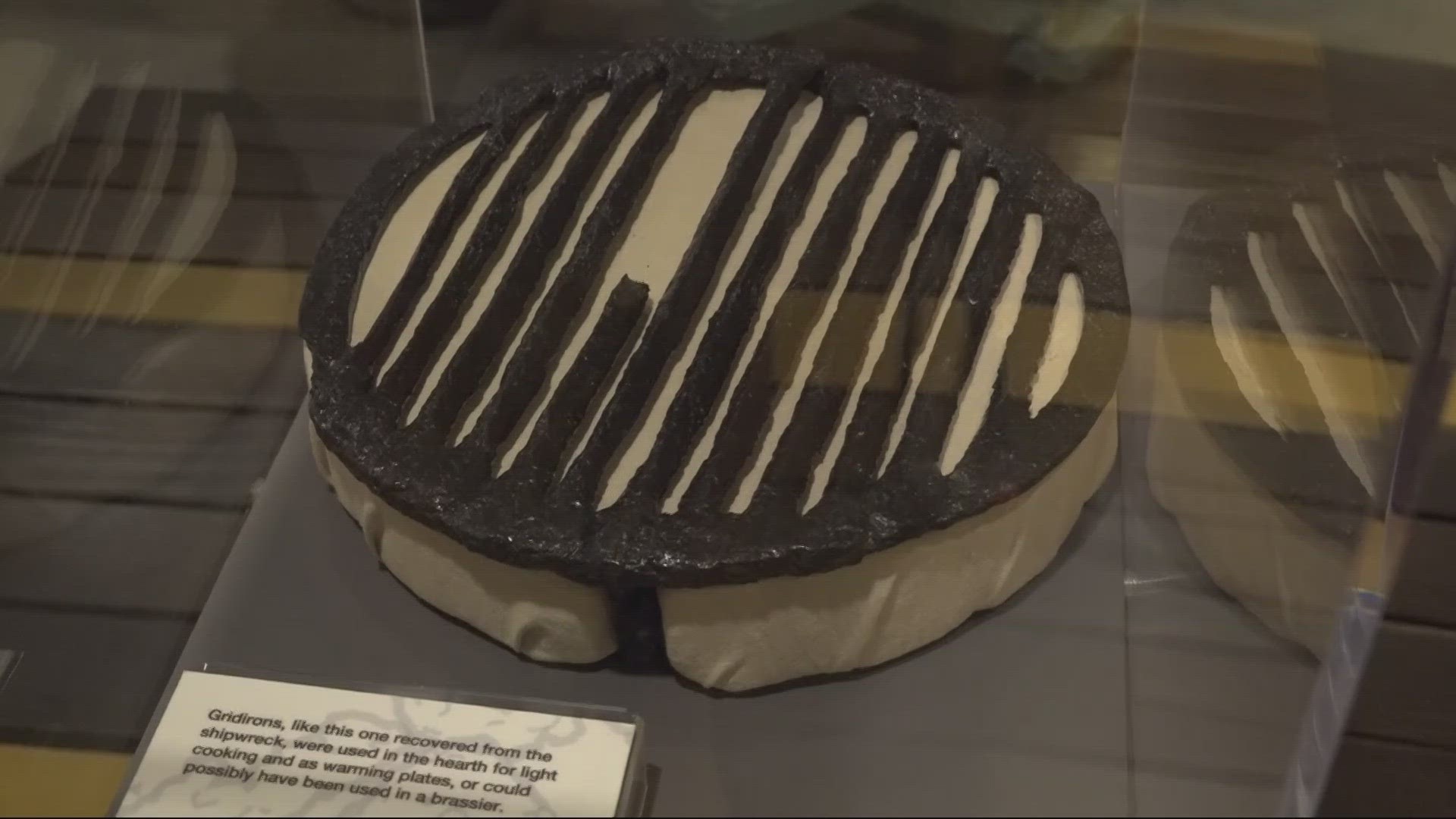ST. AUGUSTINE, Fla. — Here’s a story for the 4th of July weekend.
It combines the Revolutionary War, a shipwreck and barbeque.
Picture this, you're in the Atlantic Ocean in the year 1782. It was at the end of the American Revolution.
British ships had left South Carolina, leaving who they considered those blasted patriots who had just formed the United States of America.
"They came down to St. Augustine, a group of 16 ships, and wrecked," archaeological conservator Andrew Thomas said.
More than 200 years later, scientists with the St. Augustine Lighthouse Archaeological Maritime Program found one of the ships.
Among the trove of artifacts was a weird-looking disk thing.
"We have x-rays that we take," Thomas said. "And it had these crazy lines going through it."
Once all the concretions were removed from the disk, Thomas said the item turned out to be something we Americans love to use:a grate to a grill.
Now it’s on display at the St. Augustine Lighthouse and Museum.
"So it would’ve been placed over some coals," Thomas described. "It had little legs on it. You would’ve used it exactly like a Weber."
A Weber grill, that is.
There were other kitchen items on the wreck, such as a cauldron, eating utensils and a kettle.
However, this grill is a hot artifact, given that wrought iron usually doesn’t do well in saltwater.
"The metal likes to eat itself away," Thomas noted. "There are little parts that didn’t make it through the voyage and the few hundred years underwater."
"It is kind of ironic if we’re talking about the Fourth of July," Thomas added. "It does come from the American Revolution. But it’s from the “other side.”
That would be the British side.
But hey, most people love a good barbeque!

